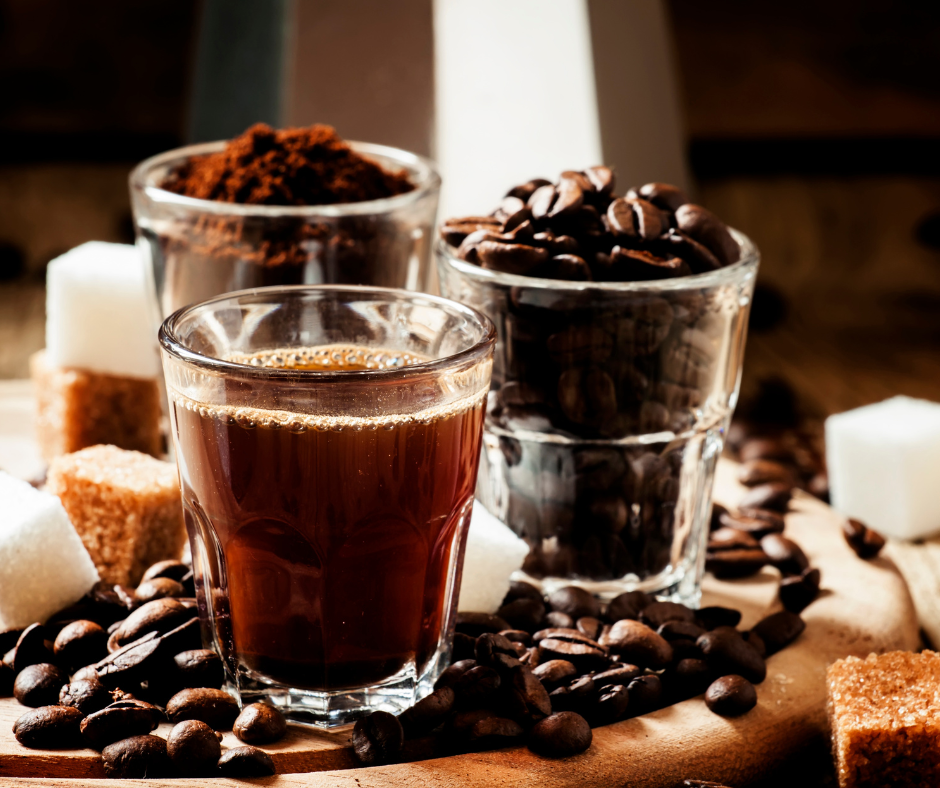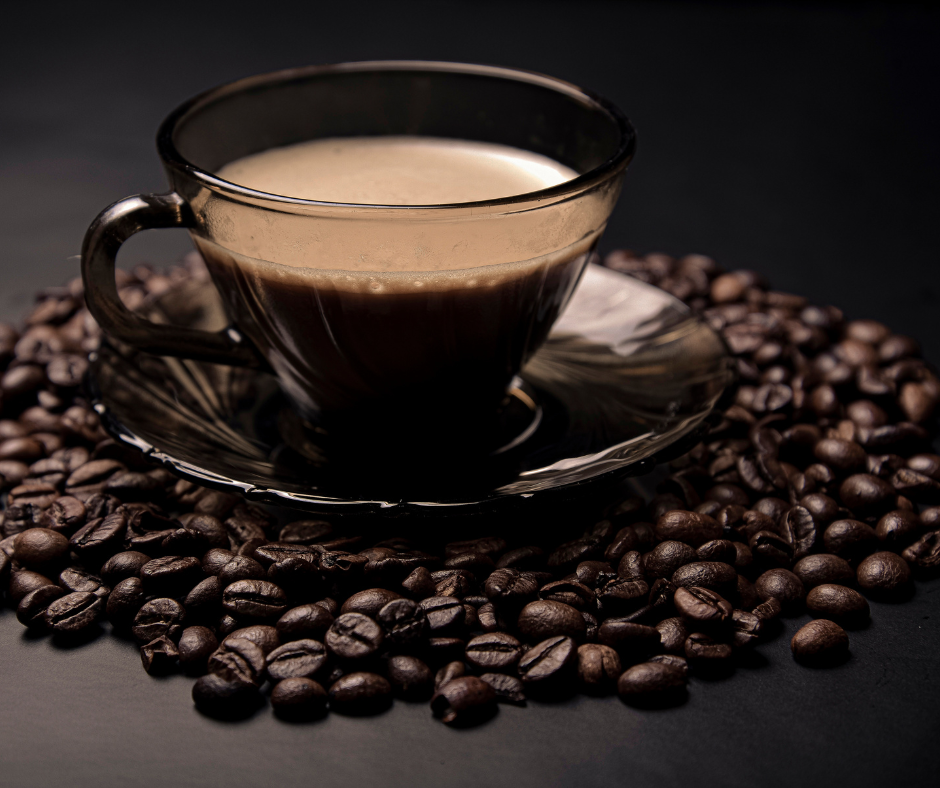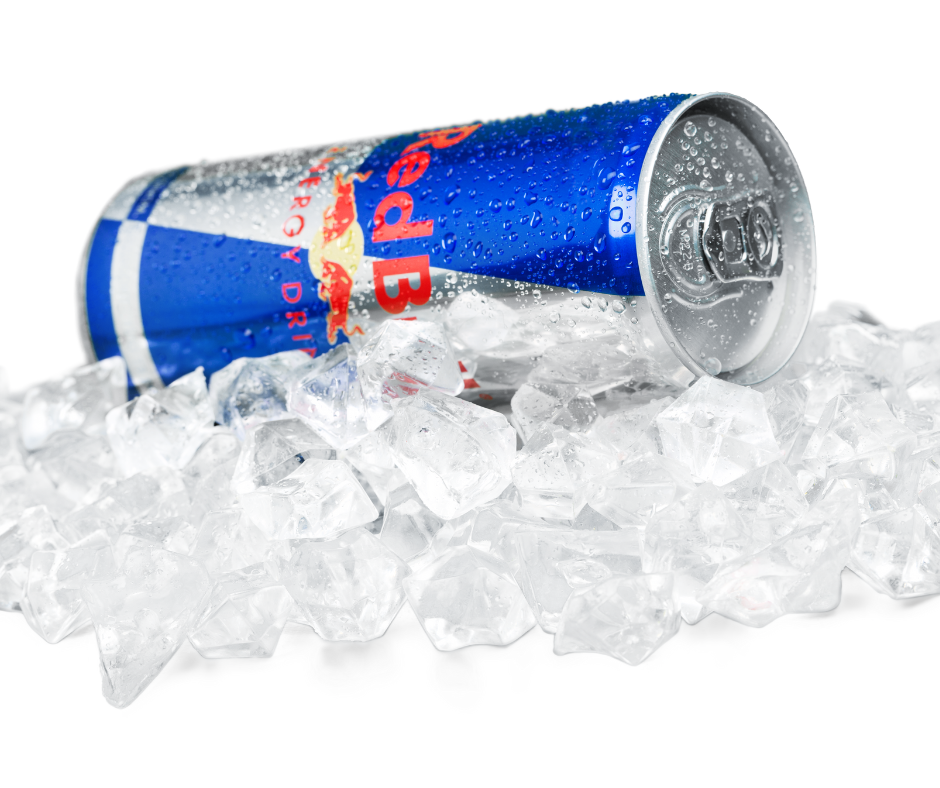Introduction
We often need energy to stay awake and focused in our fast-paced world. And when it comes to caffeine, two popular options come to mind: coffee and Red Bull. But Coffee vs. Red Bull Caffeine: Which one packs a stronger punch? Let’s find out.
Importance Of Caffeine In Keeping Awake
Caffeine is the main ingredient that helps keep us awake and alert. It stimulates our central nervous system and blocks adenosine receptors in our brain, preventing drowsiness. Whether you’re studying for exams, working late nights, or simply needing a pick-me-up, caffeine can be a powerful ally.
Comparison Between Coffee And Red Bull
Caffeine Content: In terms of Coffee vs. Red Bull Caffeine, coffee generally has more caffeine than Red Bull. A typical cup of coffee contains about 100-145 mg of caffeine, while an 8.4-ounce Red Bull has 80 mg of caffeine.
Sugar Content: Coffee is better if you’re watching your sugar intake. A can of Red Bull contains about 27 grams of sugar, while black coffee contains no sugar.
Additional Ingredients: Red Bull contains taurine, a naturally occurring stimulant that promotes cardiovascular health and relaxation. Coffee does not contain taurine but has antioxidants that benefit overall health.
Taste and Convenience: It’s more subjective when it comes to taste and convenience. Some people prefer the bold flavor of coffee, while others enjoy the sweetness of Red Bull. Regarding convenience, Red Bull comes in a ready-to-drink can, while brewing coffee requires time and effort.
In conclusion, coffee and Red Bull provide an energy boost due to their caffeine content. Coffee generally has more caffeine and fewer sugars, while Red Bull contains taurine and a sweeter taste. Ultimately, the choice between coffee and Red Bull comes from personal preference and individual needs. Remember to consume them in moderation and be mindful of your caffeine intake.
How Caffeine Helps In Staying Awake?
Caffeine is a natural stimulant that plays with our brain chemistry and makes us alert. Drinks like coffee and Red Bull rank high on the list of popular caffeinated drinks. But which one provides a stronger punch? Let’s take a closer look at the impact of caffeine on our bodies and determine which drink comes out on top.
Impact Of Caffeine On Brain Chemistry
When we consume caffeine, it gets absorbed into our bloodstream and reaches our brains. Once there, it attaches to adenosine receptors, blocking the ability of adenosine to make us feel sleepy. This results in increased alertness and wakefulness.
Release Of Hormones And Its Effects
Caffeine also triggers the release of hormones such as adrenaline, dopamine, cortisol, and adrenocorticotropin (ACTH). These hormones help to get us out of a lethargic state and into an active one. However, this hormonal rush can lead to side effects like jitters, nervousness, and irritability for some individuals.
Now let’s compare the caffeine content of coffee versus Red Bull:
Regarding caffeine content, a single shot of espresso contains around 64-65 mg, while a 250ml can of Red Bull contains approximately 75mg. However, it’s important to note that different coffee drinks can have varying amounts of caffeine depending on the brewing method and serving size.
Overall, coffee tends to offer a higher caffeine content than Red Bull. Additionally, coffee has the added benefit of antioxidants and other active substances that may provide health benefits, such as reducing the risk of type 2 diabetes, heart diseases, liver and endometrial cancers, and Parkinson’s disease.
On the other hand, Red Bull offers convenience and is easy to consume. It also comes in sugar-free or diet versions for reducing sugar intake.
In conclusion, while Red Bull may provide a quick energy boost, coffee offers a stronger caffeine punch and additional health benefits. It ultimately comes down to personal preference and individual needs when choosing between the two.
Caffeine Content In Coffee
When it comes to caffeine content, coffee takes the lead. A single shot of espresso contains about 63-65 mg of caffeine, while a regular cup of coffee can range from 80 to 200 mg depending on the variety and brewing method. Coffee provides a real kick of energy due to its high caffeine content.
Variations In Caffeine Content Based On Different Coffee Drinks
It’s important to note that the caffeine content in coffee can vary depending on the type of drink you choose. For example, if you prefer a lighter option like a latte or cappuccino, the additional ingredients like milk, sugar, and flavoring syrups may dilute the caffeine content. However, if you’re a fan of hardcore espresso shots or opt for stronger coffee beans, you can get a higher dose of caffeine.
Advantages Of Coffee In Terms Of Caffeine Kick
Coffee offers more flexibility when it comes to controlling your caffeine intake. You can choose the type of coffee, the brewing method, and even add-ons like sugar or milk to customize your caffeine kick. Besides caffeine, coffee also contains antioxidants and other beneficial substances linked to various health benefits, such as reducing the risk of type 2 diabetes and certain cancers.
Coffee provides a stronger punch regarding caffeine content than Red Bull. However, it’s important to consume coffee in moderation and be mindful of additional ingredients or additives that may affect your overall health.
Key Points:
- Coffee contains higher levels of caffeine compared to Red Bull.
- Different types of coffee drinks can have varying amounts of caffeine.
- Coffee offers more flexibility in controlling your caffeine intake.
- Coffee also contains antioxidants and other beneficial substances.
- It’s important to consume coffee in moderation and be aware of any added ingredients.
Caffeine Content In Red Bull
Have you ever wondered which beverage packs a stronger punch when it comes to Coffee vs. Red Bull Caffeine? Let’s dive into the caffeine content of Red Bull and its limitations in controlling intake.
Fixed Caffeine Content In Red Bull Cans
An 8.4-ounce can of Red Bull contains 80 milligrams of caffeine. This may seem modest compared to a cup of coffee, but it’s important to note that Red Bull comes in standard sizes with consistent caffeine content. This gives consumers a clear idea of how much caffeine they consume per can.
Limitations Of Controlling Caffeine Intake In Red Bull
While the fixed caffeine content in Red Bull cans may be convenient for some, it can be limiting for those who want to control their caffeine intake more precisely. On the other hand, coffee offers more flexibility as the caffeine content varies depending on factors such as the type of bean, brewing method, and serving size. This means that individuals can adjust their coffee consumption to meet their desired caffeine levels more accurately.
It’s important to note that coffee and Red Bull fall well below the recommended maximum caffeine intake of 400 milligrams daily. However, individuals with specific health concerns or sensitivities may need to carefully monitor their caffeine consumption and consult their healthcare provider for guidance.
In conclusion, while Red Bull has a fixed caffeine content per can, coffee offers more flexibility in controlling caffeine intake. Both beverages can be enjoyed in moderation and should be consumed within recommended guidelines.
Coffee vs. Red Bull Caffeine: The Winner Of The Comparison
Coffee’s Higher Caffeine Content
When comparing Coffee vs. Red Bull Caffeine, coffee takes the crown. Coffee generally contains more caffeine than Red Bull, although both beverages fall within the recommended daily caffeine limit. An 8-ounce cup of coffee can contain between 80 and 200 milligrams of caffeine, depending on the varietal and brew method. On the other hand, an 8.4-ounce can of Red Bull has 80 milligrams of caffeine. So, if you’re looking for a stronger punch of caffeine, reach for your favorite cup of joe.
Additional Benefits Of Coffee (antioxidants, Health Benefits)
But coffee’s superiority over Red Bull doesn’t end with its higher caffeine content. Coffee also brings additional health benefits and antioxidant properties to the table. Unlike Red Bull, which contains sugar, black coffee has no sugar. Excessive sugar consumption has been linked to various negative effects, so choosing coffee can help you avoid those risks.
Furthermore, coffee is known to be rich in antioxidants. It offers many health benefits, with over 1000 compounds in coffee and many antioxidants. Antioxidants combat oxidative stress in the body and may help reduce the risk of several diseases.
So not only does coffee provide a greater caffeine kick, but it also has added health advantages due to its antioxidant properties. You get a stronger energy boost and promote your overall well-being by choosing coffee over Red Bull.
Coffee emerges as the clear winner in the caffeine showdown between Coffee and Red Bull. With its higher caffeine content and numerous health benefits, it’s no wonder that many people prefer to start their day with a cup of joe. So, next time you need an energy boost, reach for your favorite coffee brew and enjoy its benefits.
Factors To Consider When Choosing Between Coffee And Red Bull
When getting a caffeine fix, many people are torn between coffee and energy drinks like Red Bull. Both have their unique characteristics and benefits. Here are some factors to consider when making your choice:
Price Comparison
Price can often be a determining factor in what we choose to consume. When comparing the cost of coffee and Red Bull, coffee tends to be the more affordable option. A cup of coffee brewed at home or bought from a coffee shop is generally cheaper than buying a can of Red Bull.
Availability Of Coffee And Red Bull
Coffee is widely available and can be found in various forms, from instant coffee to freshly brewed options at specialty cafes. On the other hand, Red Bull is also readily available, but it may not be as easy to find as coffee. Energy drinks like Red Bull are typically sold in convenience stores, supermarkets, and vending machines.
Personal Preference And Flavor Options
Taste is subjective, so personal preference plays a big role in choosing between coffee and Red Bull. Some people enjoy coffee’s rich aroma and flavors, while others prefer energy drinks’ sweet and fizzy taste. Additionally, coffee offers a wide range of flavor options, such as different roasts, blends, and brewing methods, allowing customization to suit individual tastes.
It’s important to note that coffee and Red Bull contain caffeine, providing a physical boost and improved alertness. However, the caffeine content varies between the two beverages. A cup of coffee typically contains more caffeine than a can of Red Bull. The specific amounts depend on the coffee type and the serving size.
Ultimately, the choice between coffee and Red Bull comes from individual preferences, budget, availability, and desired caffeine content. Considering these factors and choosing the option that aligns with your needs and preferences is essential.
FAQ about Coffee vs. Red Bull Caffeine Showdown: Which Packs a Stronger Punch?
Q: What is the difference between coffee and Red Bull in terms of caffeine content?
A: Coffee and Red Bull are two popular caffeinated beverages, but they differ in terms of caffeine content. On average, an 8-ounce cup of coffee contains around 95 milligrams (mg) of caffeine, while an 8.4-ounce can of Red Bull contains about 80 mg of caffeine.
Q: Which one provides a quicker energy boost: coffee or Red Bull?
A: When it comes to speed, Red Bull may provide a quicker energy boost compared to coffee. The caffeine in Red Bull is combined with other ingredients like taurine, B vitamins, and sugar, which can enhance its stimulant effects. On the other hand, coffee takes some time for the caffeine to be absorbed into the bloodstream.
Q: Is the energy boost from Red Bull intense but short-lived?
A: Yes, the energy boost from Red Bull is generally intense but short-lived. The combination of caffeine and other stimulating ingredients may provide a sudden burst of energy, but it may wear off relatively quickly. Many people experience a crash or lower energy levels once the effects of Red Bull wear off.
Q: Does coffee provide a longer-lasting energy boost compared to Red Bull?
A: Coffee is known for providing a longer-lasting energy boost compared to Red Bull. While the initial increase in energy might be milder than Red Bull, the effects of coffee can be more sustained due to its higher caffeine content. Coffee’s caffeine is also metabolized more slowly, leading to a more gradual decline in energy levels.
Q: Can the caffeine content in coffee and Red Bull have different effects on individuals?
A: Yes, the effects of caffeine can vary from person to person. Some individuals may be more sensitive to the stimulant effects of caffeine, while others may be less affected. Factors such as tolerance, body weight, and overall health can influence how an individual responds to caffeine, regardless of whether it is from coffee or Red Bull.
Q: Does coffee or Red Bull have any side effects?
A: Both coffee and Red Bull can have potential side effects if consumed in excess. Common side effects of caffeine include increased heart rate, jitters, anxiety, insomnia, and dehydration. It’s important to moderate consumption and be mindful of your own body’s response to caffeine.
Q: Are there any health benefits associated with coffee or Red Bull?
A: Coffee has been linked to various health benefits when consumed in moderation, such as improved cognitive function, increased alertness, and a reduced risk of certain diseases like Parkinson’s disease and liver cancer. Red Bull, on the other hand, is not typically associated with significant health benefits beyond its temporary energy boost.
Q: Can coffee and Red Bull be enjoyed together?
A: Coffee and Red Bull can be enjoyed together, but it’s important to be aware of your caffeine intake and the potential side effects. Consuming large amounts of caffeine from both sources at once may increase your risk of experiencing negative effects like jitteriness or excessive stimulation.
Conclusion
In the battle of Coffee vs. Red Bull Caffeine, it’s clear that both beverages have their unique benefits and drawbacks. Coffee offers a higher caffeine content and a variety of flavors, making it a popular choice for many individuals. Additionally, coffee contains antioxidants and can lower the risk of certain chronic diseases. On the other hand, Red Bull provides a quick energy boost and contains B vitamins that coffee lacks. However, Red Bull also has added sugars and has been shown to increase blood pressure and heart rate.
Regarding caffeine intake, it’s important to regulate consumption and avoid overconsumption. While coffee and Red Bull contain similar levels of caffeine per serving, it’s crucial to pay attention to serving sizes and individual sensitivities to caffeine. Pregnant women and caffeine-sensitive individuals should limit their intake accordingly.
Ultimately, the choice between coffee and Red Bull comes from personal preference and individual health considerations. Coffee offers a natural and low-calorie option with added health benefits, while Red Bull can provide a quick energy boost when needed. Monitoring your beverage intake and making choices that align with your overall health goals is important.
So, whether you’re reaching for that cup of coffee in the morning or grabbing a can of Red Bull for an afternoon pick-me-up, be mindful of your caffeine consumption and make choices that support your well-being.
References:

Deb Carlson at Crosslake Coffee: Join Deb at Crosslake Coffee for a delightful blend of community, caffeine, and creativity. Discover the cozy ambiance and warm hospitality that make this local coffee shop a beloved gathering spot. From expertly crafted espresso drinks to mouthwatering pastries, Deb invites you to savor every sip and bite. Stay connected with the latest updates on specials, events, and live music performances by following Deb Carlson at Crosslake Coffee on social media. Embrace the vibrant online community and share your love for great coffee and good company with fellow enthusiasts. Don’t miss out on a moment of the Crosslake Coffee experience – connect with Deb on social media today.




Can you comment on whether there is enough actual grapefruit juice in Fresca to cause problems for those on Lipitor or other meds that recommend staying away from grapefruit. Is there enough natural juice in Fresca to worry?
Hi Jeff,
There is uncertainty regarding the amount of actual grapefruit juice present in Fresca that could potentially cause issues for individuals on medications such as Lipitor, which advises avoiding grapefruit consumption. It is crucial to note that the exact quantity of natural juice in Fresca remains undisclosed.
As a result, it may not be possible to determine if there is enough natural juice in Fresca to cause any concerns for individuals on specific medications. If you are on Lipitor or any other medication that warns against grapefruit consumption, it is always recommended to consult with your healthcare provider for personalized advice.
It is essential to prioritize your health and follow the guidelines provided by your healthcare professional. They can provide accurate information about your medication and evaluate whether consuming Fresca or any other grapefruit-containing products would pose a potential risk to your health.
Remember that maintaining an open line of communication with your healthcare provider is crucial, as they are best equipped to provide you with personalized guidance regarding your medication and dietary choices.